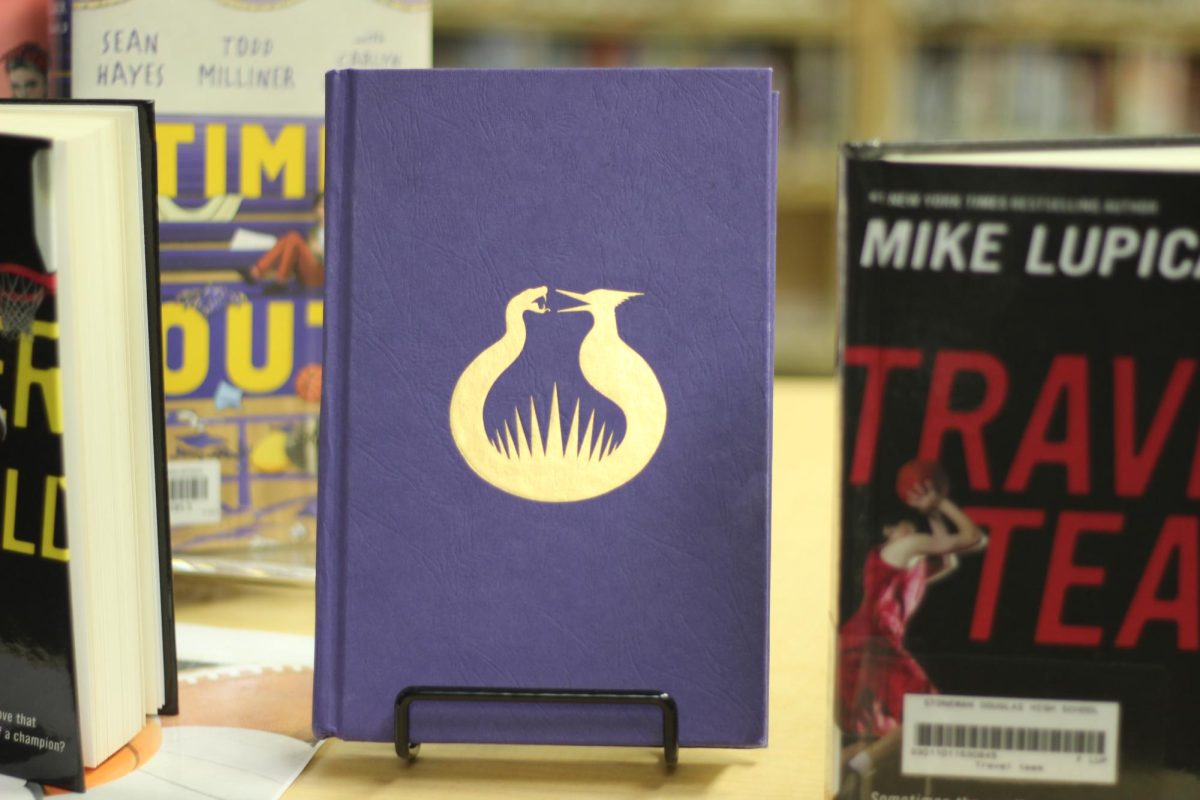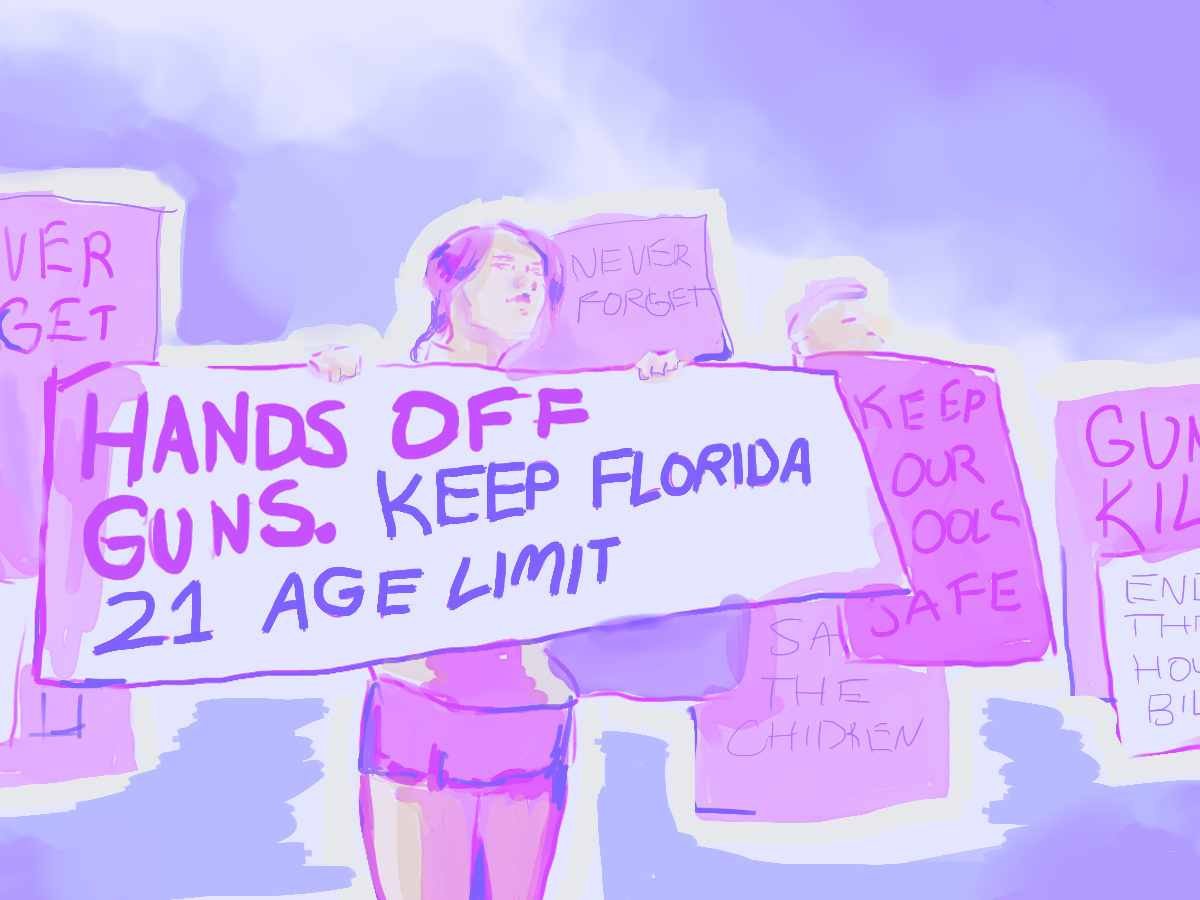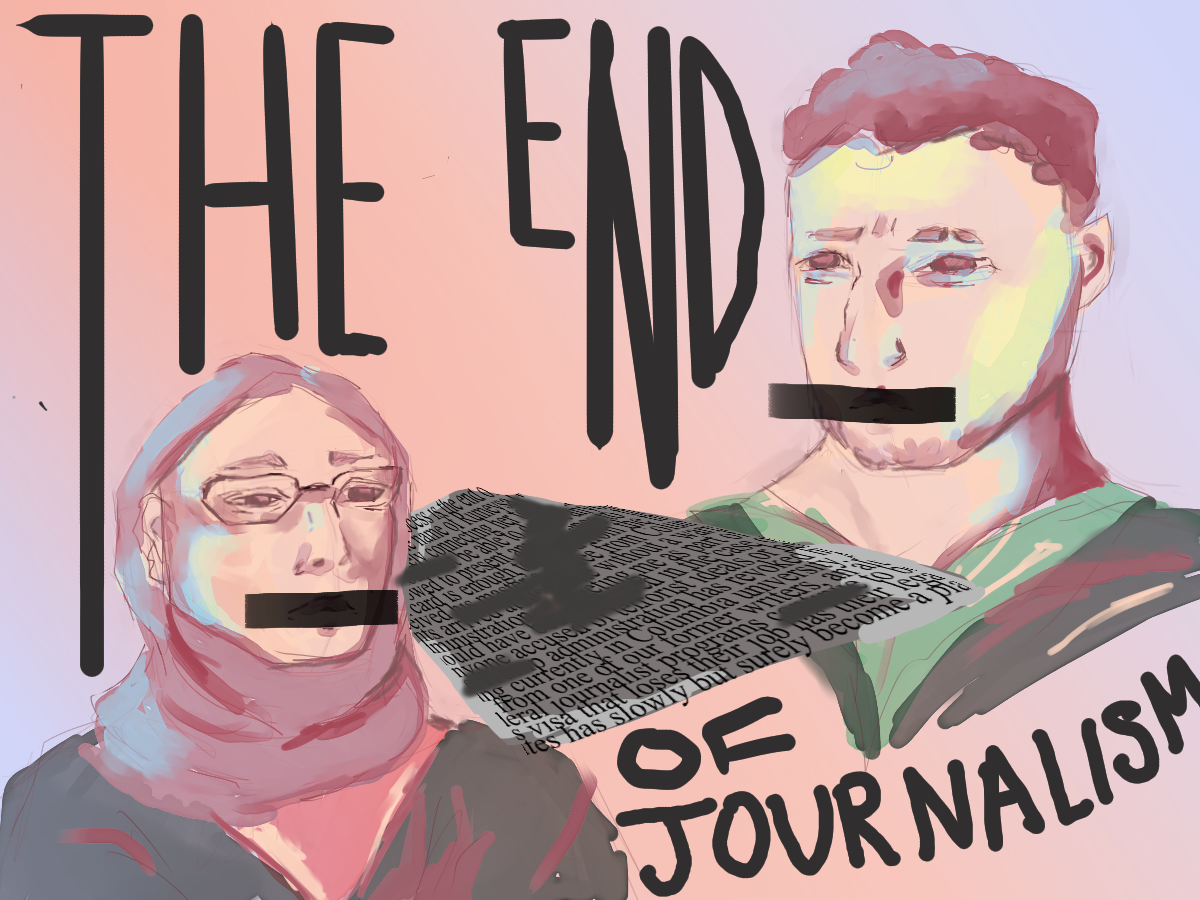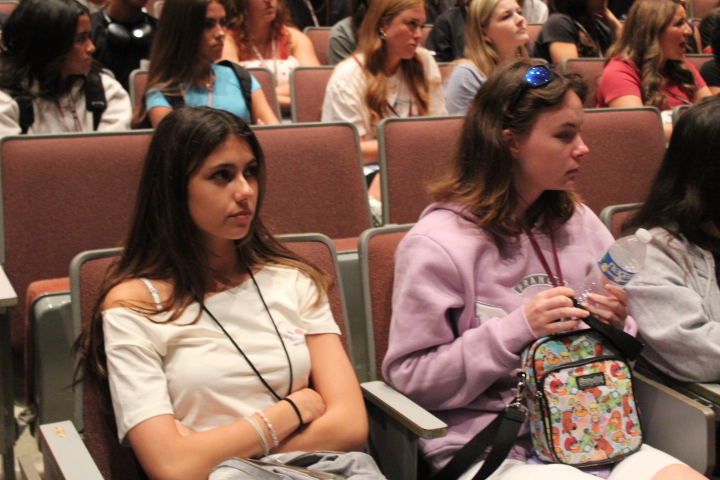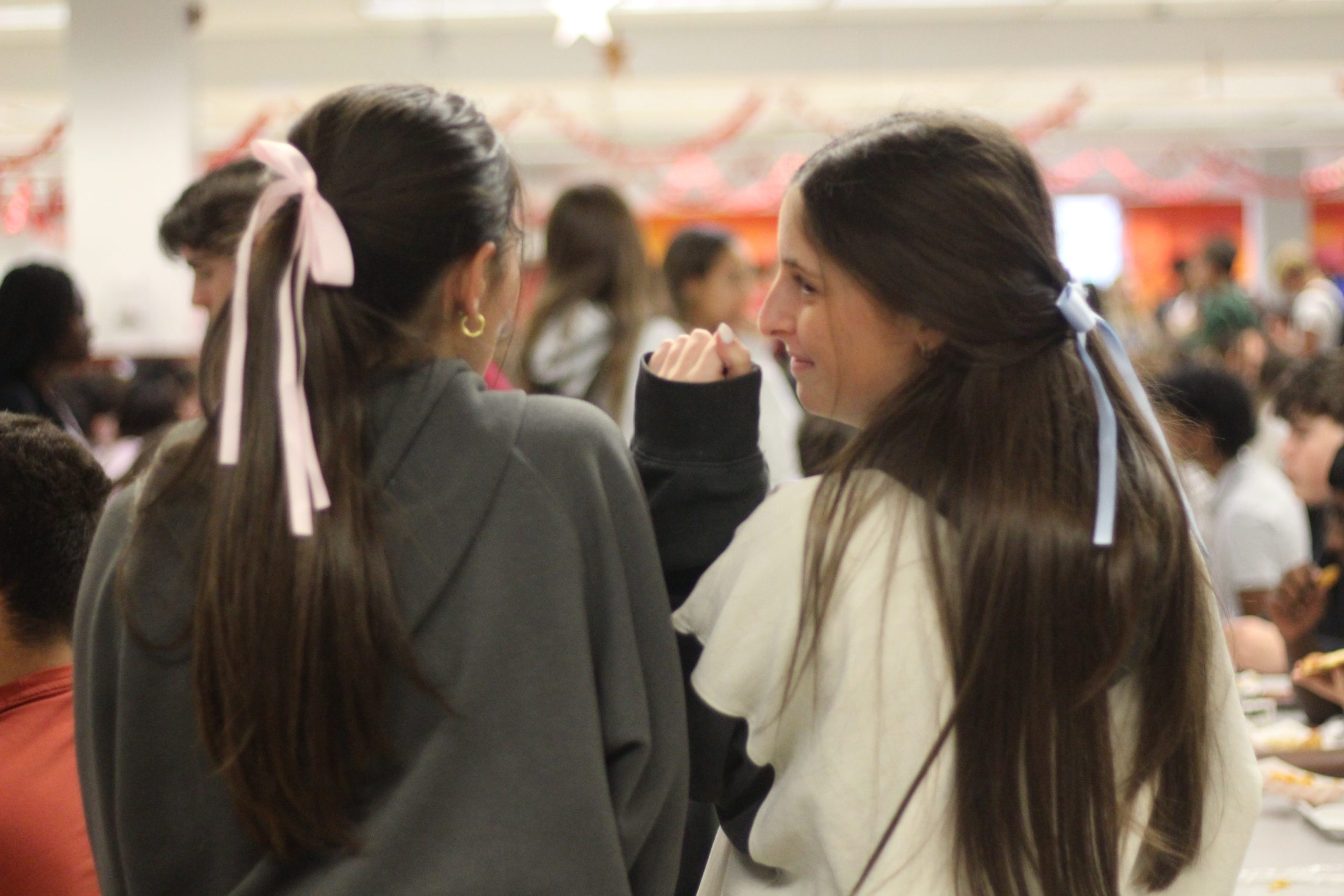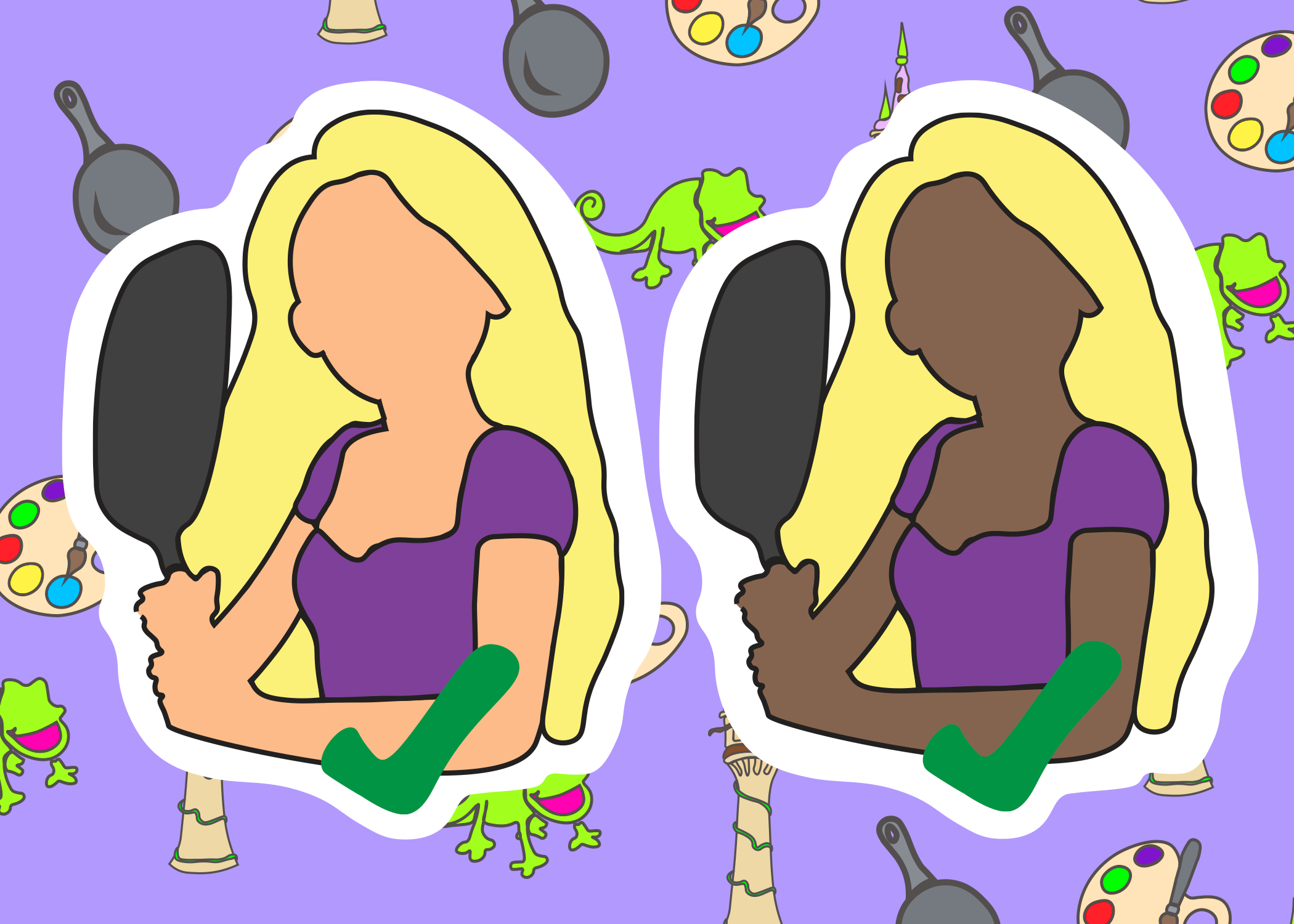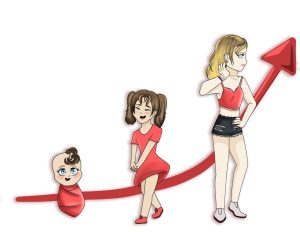MSD The Eagle Eye Editorial Policies
MARJORY STONEMAN DOUGLAS HIGH SCHOOL MEDIA EDITORIAL POLICY
“Congress shall make no law…abridging the freedom of speech, or of the press….”
-The First Amendment to the Constitution of the United States of America
“The vigilant protection of constitutional freedoms is nowhere more vital than in the community of American schools.”
-Tinker v. Des Moines Independent Community School District
The MSD Media Editorial Policy pertains to all MSD media, including the newsmagazine, the Eagle Eye; the yearbook, Aerie; the website, eagleeye.news; and the broadcast WMSD News. The full editorial policy is available on eagleeye.news.
MSD Media are the official student-produced media of news and information published/produced by MSD Media students. MSD Media have been established as designated public forums for student editors to inform and educate their readers as well as for the discussion of issues of concern to their audience. It will not be reviewed or restrained by school officials prior to publication or distribution. Advisers may – and should coach and discuss content – during the writing process.
Because school officials do not engage in prior review, and the content of MSD Media is determined by and reflects only the views of the student staff and not school officials or the school itself, its student editorial board and responsible student staff members assume complete legal and financial liability for the content of the publication.
Section I: Freedom of the Press
As it is essential to preserve the freedom of the press in order to preserve a free society,
- The media will serve the best interest of the students and faculty of Marjory Stoneman Douglas High School, keeping itself free from any commercial obligations distracting from this purpose; this is defined by the media itself;
- Any decisions affecting the publications on all levels will be made by the editorial board, the adviser is allowed to give legal advice and his/her opinion, but the final decision rests in the hands of the editorial board;
- Only the editorial board may prevent material it judges to be in violation of the media editorial policy, from being printed;
- All media will vigorously resist all attempts at censorship, particularly pre-publication censorship;
- All media retain the right to publish any and all material attained through an interview by a staff member of the publications staff, holding that the interviewee was made aware that the information could be published in any form at any time;
- All student media referenced in this editorial policy are designated public forums;
- Student journalists may use print and electronic media to report news and information, to communicate with other students and individuals, to ask questions of and consult with experts and to gather material to meet their newsgathering and research needs;
- MSD Media and its staff are protected by and bound to the principles of the First Amendment and other protections and limitations afforded by the Constitution and the various laws and court decisions implementing those principles;
- MSD Media will not publish any material determined by student editors or the student editorial board to be unprotected, that is, material that is libelous, obscene, materially disruptive of the school process, an unwarranted invasion of privacy, a violation of copyright or a promotion of products or services unlawful (illegal) as to minors as defined by state or federal law;
- Definitions and examples for the above instances of unprotected speech can be found in Law of the Student Press published by the Student Press Law Center.
Section II: Official Student Media
A. RESPONSIBILITIES OF STUDENT JOURNALISTS
Students who work on official, school-sponsored student publications or electronic media determine the content of their respective publications and are responsible for that content. These students should:
- Determine the content of the student media;
- Strive to produce media based upon professional standards of accuracy, objectivity and fairness;
- Review material to improve sentence structure, grammar, spelling and punctuation;
- Check and verify all facts and verify the accuracy of all quotations; and
- In the case of editorials or letters to the editor concerning controversial issues, determine the need for rebuttal comments and opinions and provide space therefore if appropriate.
B. PROTECTED SPEECH
1. School officials cannot:
- a. Ban student expression solely because it is controversial, takes extreme, “fringe” or minority opinions, or is distasteful, unpopular or unpleasant;
- b. Ban the publication or distribution of material relating to sexual issues including, but not limited to, virginity, birth control and sexually-transmitted diseases (including AIDS);
- c. Censor or punish the occasional use of indecent, vulgar or so called “four-letter” words in student publications;
- d. Prohibit criticism of the policies, practices or performance of teachers, school officials, the school itself or of any public officials;
- e. Cut off funds to official student media because of disagreement over editorial policy;
- f. Ban student expression that merely advocates illegal conduct without proving that such speech is directed toward and will actually cause imminent unlawful action.
- g. Ban the publication or distribution by students of material written by non-students;
- h. Prohibit the endorsement of candidates for student office or for public office at any level.
2. Commercial Speech
Advertising is constitutionally protected expression. Student media may accept advertising. Acceptance or rejection of advertising is within the purview of the publication staff, which may accept any ads except those for products or services that are illegal for all students. Ads for political candidates and ballot issues may be accepted; however publication staffs are encouraged to solicit ads from all sides on such issues.
C. UNPROTECTED EXPRESSION
The following types of student expression will not be protected:
Material that is “obscene as to minors.” “Obscene as to minors is defined as material that meets all three of the following requirements: (a) the average person, applying contemporary community standards, would find that the publication, taken as a whole, appeals to a minor’s prurient interest in sex; and (b) the publication depicts or describes, in a patently offensive way, sexual conduct such as ultimate sexual acts (normal or perverted), masturbation and lewd exhibition of the genitals; and; (c) the work, taken as a whole, lacks serious literary, artistic, political or scientific value. Indecent or vulgar language is not obscene.
Libelous material. Libelous statements are provably false and unprivileged statements of fact that do demonstrated injury to an individual’s or business’s reputation in the community. If the allegedly libeled party is a “public figure” or “public official” as defined below, then school officials must show that the false statement was published “with actual malice,” i.e., that the student journalists knew that the statement was false or that they published it with reckless disregard for the truth, without trying to verify the truthfulness of the statement.
- (a) A public official is a person who holds an elected or appointed public office and exercises a significant amount of governmental authority.
- (b) A public figure is a person who either has sought the public’s attention or is well known because of personal achievements or actions.
- (c) School employees will be considered public officials or public figures in relationship to articles concerning their school-related activities.
- (d) When an allegedly libelous statement concerns an individual who is not a public official or a public figure, school officials must show that the false statement was published willfully or negligently, i.e., the student journalist who wrote or published the statement has failed to exercise reasonably prudent care. (
- e) Students are free to express opinions. Specifically, a student may criticize school policy or the performance of teachers, administrators, school officials and other school employees.
Material that will cause “a material and substantial disruption of school activities.”
- (a) Disruption is defined as student rioting, unlawful seizures of property, destruction of property, or substantial student participation in a school boycott, sit-in, walk-out or other related form of activity. Material such as racial, religious or ethnic slurs, however distasteful, is not in and of itself disruptive under these guidelines. Threats of violence are not materially disruptive without some act in furtherance of that threat or a reasonable belief and expectation that the author of the threat has the capability and intent of carrying through on that threat in a manner that does not allow acts other than suppression of speech to mitigate the threat in a timely manner. Material that stimulates heated discussion or debate does not constitute the type of disruption prohibited.
- (b) For student media to be considered disruptive, specific facts must exist upon which one could reasonably forecast that a likelihood of immediate, substantial material disruption to normal school activity would occur if the material were further distributed or has occurred as a result of the material’s distribution or dissemination. Mere undifferentiated fear or apprehension of disturbance is not enough; school administrators must be able affirmatively to show substantial facts that reasonably support a forecast of likely disruption.
- (c) In determining whether student media is disruptive, consideration must be given to the context of the distribution as well as the content of the material. In this regard, consideration should be given to past experience in the school with similar material, past experience in the school in dealing with and supervising the students in the school, current events influencing student attitudes and behavior and whether there have been any instances of actual or threatened disruption prior to or contemporaneously with the dissemination of the student publication in question.
- (d) School officials must protect advocates of unpopular viewpoints.
- (e) “School activity” means educational student activity sponsored by the school and includes, by way of example and not by way of limitation, classroom work, official assemblies and other similar gatherings, school athletic contests, band concerts, school plays and scheduled in-school lunch periods.
Section III: The Editorial Board
- The editorial board will consist of all student staff editors.
- The editorial board decides on all decisions that pertain directly the MSD media and their interests.
- No member of the editorial board shall have more than one vote on the board.
- All members of the editorial board and the adviser will elect a replacement for board members who have been dismissed.
- All members of the editorial board are expected to know their duties and jobs in the room and must understand the consequences of not fulfilling said jobs.
- The student editor and staff who want appropriate outside legal advice regarding proposed content – should seek attorneys knowledgeable in media law such as those of the Student Press Law Center. Final content decisions and responsibility shall remain with the student editorial board.
- The duly appointed editor or co-editors shall interpret and enforce this editorial policy.
Section IV: The Adviser
- The adviser is a professional teaching staff member and is in charge of the class just as in a conventional classroom situation.
- Is a certified journalism teacher that serves as a professional role model, motivator, catalyst for ideas and professionalism, and an educational resource.
- Provides a journalistic, professional learning atmosphere for students by allowing them to make the decision of content for the media and ensuring the media will remain an open forum.
- Guides the newspaper staff in accordance with approved editorial policy and aids the educational process related to producing the newspaper.
- May caution, act as legal consultant and educator terms of unprotected speech, but has no power over censorship or veto except for constitutionally valid reasons.
- Will keep abreast of the latest trends on journalism and share these with students.
- Will submit the school newspaper, yearbook, podcast, and online content produced by the students to rating services and contests in order for the school publications staff to receive feedback.
- Will forward any received correspondence and/or information to the appropriate editors.
- Will provide information to the staff about journalism scholarships and other financial aid, and make available information and contacts concerning journalism as a career.
- Will work with the faculty and administration to help them understand the freedoms accorded to the students and the professional goals of the school publications.
- The adviser will not act as a censor or determine the content of the paper. The adviser will offer advice and instruction, following the Code of Ethics for Advisers established by the Journalism Education Association as well as the Canons of Professional Journalism. School officials shall not fire or otherwise discipline advisers for content in student media that is determined and published by the student staff
Section V: The Building Administration
- The Marjory Stoneman Douglas High School administration will provide the students of MSD with a qualified journalism instructor to serve as a professional role model, adequate classroom equipment, and space for a sound journalism program.
- MSD administration will offer equal opportunity to minority and/or marginalized students to participate in journalism programs.
- MSD administration is not required to view and approve publication content before publishing.


